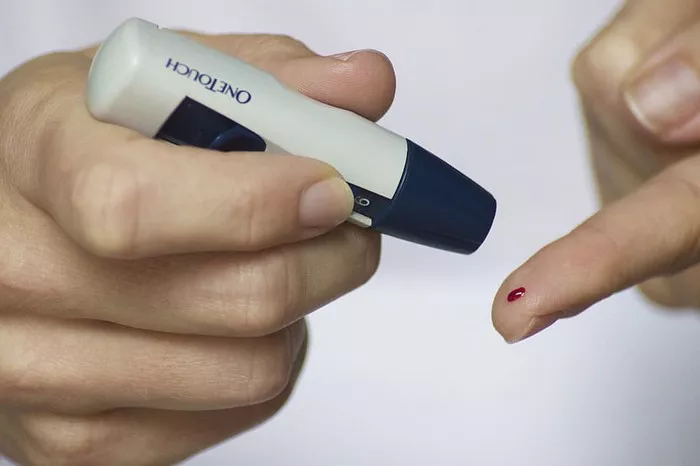As a crucial component of diabetes management, monitoring blood sugar levels is paramount in maintaining optimal health and preventing complications. Among the various times of day for testing, fasting blood sugar levels before breakfast provide valuable insights into overall glycemic control. This article aims to elucidate what constitutes a normal blood sugar level before breakfast, factors influencing these levels, and implications for individuals with and without diabetes.
What is Fasting Blood Sugar?
Fasting blood sugar, often measured in the morning before breakfast, reflects the amount of glucose present in the bloodstream after an overnight fast. In individuals without diabetes, this level typically ranges between 70 and 100 milligrams per deciliter (mg/dL), although slight variations may occur based on factors such as age, health status, and individual metabolism. However, for individuals with diabetes, maintaining fasting blood sugar within a target range is crucial for effective diabetes management and minimizing the risk of complications.
Normal Blood Sugar Levels Before Breakfast
The definition of normal blood sugar levels before breakfast varies slightly depending on the guidelines provided by different healthcare organizations. According to the American Diabetes Association (ADA), the recommended target range for fasting blood sugar levels before breakfast for adults with diabetes is typically between 80 and 130 mg/dL. However, individualized targets may be established based on factors such as age, duration of diabetes, presence of complications, and overall health status.
For individuals without diabetes, a fasting blood sugar level before breakfast below 100 mg/dL is generally considered normal. Values between 100 and 125 mg/dL may indicate prediabetes, while levels equal to or greater than 126 mg/dL on two separate occasions are indicative of diabetes, necessitating further evaluation and management.
Factors Influencing Fasting Blood Sugar Levels
Several factors can influence fasting blood sugar levels before breakfast, highlighting the complexity of glycemic control. Understanding these factors is essential for individuals with diabetes to make informed decisions regarding diet, medication, and lifestyle modifications. Some of the key factors influencing fasting blood sugar levels include:
- Dietary Habits: The composition and timing of meals can significantly impact fasting blood sugar levels. Consuming carbohydrate-rich foods close to bedtime may lead to elevated morning blood sugar levels due to delayed carbohydrate metabolism during sleep.
- Physical Activity: Regular physical activity helps improve insulin sensitivity and glucose uptake by muscles, thereby lowering fasting blood sugar levels. Conversely, sedentary behavior can contribute to insulin resistance and elevated blood sugar levels.
- Medications: The type and dosage of diabetes medications, including insulin and oral hypoglycemic agents, play a crucial role in regulating fasting blood sugar levels. Adherence to prescribed medication regimens and regular monitoring are essential for achieving optimal glycemic control.
- Stress and Illness: Stress and illness can trigger the release of stress hormones such as cortisol and adrenaline, leading to temporary increases in blood sugar levels. Individuals with diabetes may experience higher fasting blood sugar levels during periods of stress or illness, necessitating adjustments to their treatment plan.
- Sleep Quality: Poor sleep quality and inadequate sleep duration have been associated with insulin resistance and impaired glucose metabolism, potentially leading to higher fasting blood sugar levels. Prioritizing sufficient and restorative sleep is essential for maintaining optimal glycemic control.
- Hormonal Changes: Hormonal fluctuations, such as those occurring during puberty, pregnancy, and menopause, can affect insulin sensitivity and blood sugar regulation. Individuals experiencing significant hormonal changes may need to adjust their diabetes management plan under the guidance of a healthcare professional.
- Liver Function: The liver plays a crucial role in glucose homeostasis by releasing stored glucose into the bloodstream when needed. Dysfunction of the liver, as observed in conditions such as non-alcoholic fatty liver disease (NAFLD), can contribute to elevated fasting blood sugar levels.
Implications for Diabetes Management
Achieving and maintaining normal fasting blood sugar levels before breakfast is a cornerstone of diabetes management, as it helps reduce the risk of long-term complications and improves overall quality of life. Individuals with diabetes should work closely with their healthcare team to establish personalized treatment goals and develop a comprehensive management plan tailored to their specific needs.
Regular blood sugar monitoring, including fasting blood sugar testing before breakfast, provides valuable feedback on the effectiveness of diabetes management strategies and helps identify trends and patterns that may require adjustments. In addition to monitoring blood sugar levels, other aspects of diabetes care, such as maintaining a healthy diet, engaging in regular physical activity, and adhering to prescribed medication regimens, are essential for achieving optimal glycemic control.
For individuals with diabetes, consistently elevated fasting blood sugar levels before breakfast may indicate the need for medication adjustments, dietary modifications, or lifestyle interventions. Consulting with a healthcare provider is essential for determining the appropriate course of action based on individual circumstances and treatment goals.
Conclusion
Fasting blood sugar levels before breakfast serve as a vital indicator of glycemic control and play a crucial role in diabetes management. While normal fasting blood sugar levels typically range between 80 and 130 mg/dL for adults with diabetes, individualized targets may vary based on various factors. Monitoring fasting blood sugar levels regularly and addressing any deviations from target ranges promptly are essential for minimizing the risk of complications and promoting overall health and well-being.
By understanding the factors influencing fasting blood sugar levels and implementing appropriate management strategies, individuals with diabetes can take proactive steps toward achieving optimal glycemic control and improving their quality of life. Collaborating with a healthcare team and adopting a comprehensive approach to diabetes care are key to successfully managing blood sugar levels and reducing the burden of diabetes-related complications in the long term.
Related topics:

























